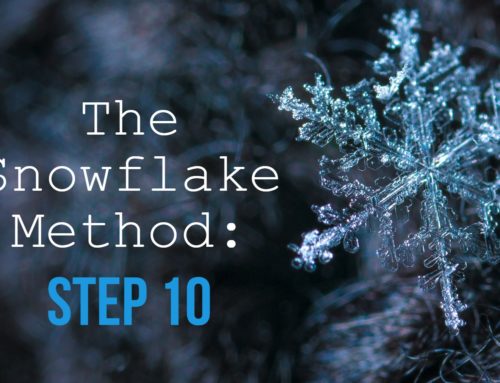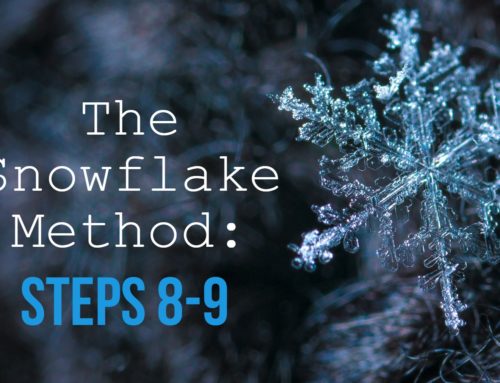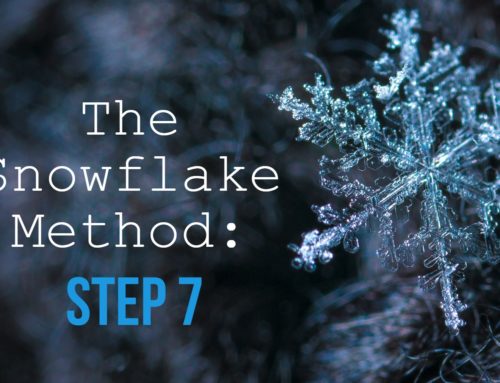The problem with stories is they require people.
I’m not talking about author and reader—though they, as well as their relationship, are fraught with challenges too—but rather the individuals that populate the story itself.
Some might call these people “characters.” But a writer doesn’t really want to invent characters any more than he/she wants to come up with a plot. Sure, we typically end up with those things, sometimes, just sometimes, we transcend.
When a reader flips through pages made of paper or pixels, the last thing an author wants is the audience to see a story as a series of fictional events. The goal of any storyteller is to weave a spell of deception so powerful that it all seems real at the time.
We aim for an obliteration of disbelief, though if we’re lucky, we invoke a suspension of the same.
If a writer can trick a reader into wondering what a character will do next or, better yet, what he/she would do in an unrelated situation, the writer is that much closer to success. Because if a reader cares about a character as if he/she were a real person, the reader is more likely to care about the story they’re a part of.
So what’s the difference between characters and people?
Characters have motives. People have psychology.
Characters follow a story arc. People exhibit behavior that moves them in a number of different—and often conflicting—directions at once.
Characters have unique voices. People adopt different voices in various situations.
Those contrasts only begin to hint at why it’s so very difficult to create a person entirely out of words. Some might argue that it’s impossible, maybe even misguided. After all, art is meant to imitate life, not become identical to it. Anyway, as previously stated, the best we writers can do is pick and choose pieces of reality, incorporate them into the folks who inhabit our fiction.
However, just because it’s difficult, that doesn’t mean we shouldn’t make every attempt to eschew the temptation to spew out two-dimensional puppets, rough archetypes, and (especially) lazy stereotypes and, instead, aspire to come as close as humanly possible to creating humans.
And how do you get to know a real person? By asking questions—lots of ’em. While working on my first novel, a creative writing professor provided me with a handout that contained a ton of questions. I can’t recall the source, and I’ve made my own additions over the years, so I believe I’m safe with sharing them in this not-for-profit venue. The questions have served me well when creating main characters, though I wouldn’t recommend taking the time to answer them all for minor players (unless, like me, you have a penchant for the planning process).
Interview question for your person-in-progress
- What does this character look like? What color eyes and hair does he/she have? What are his/her height and weight? What color his his/her skin? What is his/her race? Is there anything unusual or unique about his/her appearance (e.g., tattoos, piercings, etc.)?
- What style of clothes does he/she wear? Would anyone notice him/her in a crowd? Why or why not?
- How does he/she present him/herself? Does he/she carry him/herself proudly? Does he/she appear ashamed, shy, or aloof? Does he/she have any idiosyncrasies or habits—good or bad? Does he/she chew gum, smoke cigarettes, or have a twitch?
- Does he/she speak in a particular way? Does he/she sound educated, snobby, or dull? Does he/she use slang or the proper dialect? Is he/she sarcastic or have a particular way of telling a story? Does he/she have a favorite tagline? Is he/she always using clichés?
- What was this person’s childhood like? Did he/she have any brothers or sisters? Two parents, one, or none? Where did he/she live? Was he/she constantly moving as a child? What was he/she like as a child? Was he/she hyperactive or timid? Does he/she remember his/her childhood fondly? Are there any memories in particular that stand out?
- What does this character do for fun? Does he/she watch or compete in sports? Hunt, play cards, or play video games? Is there something he/she collects? If anything, what does he/she read? The newspaper? Mystery novels? Can he/she read at all? What types of music does he/she listen to? What movies does he/she enjoy? Does he/she have a sense of humor? What does he/she find funny or not funny? Is he/she someone you would hang out with in your free time?
- How does this person feel about lying? Does he/she lie when it suits his/her purpose? Is he/she a pathological liar or blatantly, painfully truthful? Would he/she cheat or steal? What, if anything, would prompt him/her to kill?
- How does he/she view his/her vices? Does he/she see them as sins? Is gossiping a sin? How about promiscuous sex? Is he/she cowardly, only concerned with Number One? Constantly complaining, prejudiced, racist, or greedy? Does he/she have any secrets?
- Is this character an optimist, a pessimist, or something in between? Does he/she believe in fate or free will? How does he/she feel about life? Does he/she love it? Hate it? Is he/she merely going through the motions? What does he/she want out of life? What is important to him/her? What are his/her goals? Money? Power? Success? Fame?
- Is he/she spiritual or religious? How does he/she feel about others’ beliefs? Is he/she tolerant and/or open to new ideas, or is he/she steadfast in his/her ways? Has he/she ever been in love? What does love mean to him/her? How important is it? How does he/she feel about sex? Is it important? Are his/her sexual habits normal or deviant?
- How does he/she feel about children? Does he/she love them, feel uneasy around them? Does he/she want to have children of his/her own? What might he/she sacrifice for his/her children?
- What is a typical day like for this person? Are his/her days full of surprises, or is he/she on a set schedule? Is he/she comfortable with routine, or is his/her life too stressful? What does he/she do for a living? Who are his/her friends? Does he/she have many, only a few, none? Who does he/she hate? Does he/she have any enemies?
- Is he/she married or single? Is he/she a loner by choice or desperately looking for someone? Does he/she have any kids? How often does he/she see them? Where does he/she work? Where does he/she go for fun? How does he/she interact with strangers? Or does he/she stay within his own clique? What would a random person think if he or she saw your character walking down the street?
I’m sure there are shortcuts out there—streamlined lists or other getting-to-know-you exercises—but the more questions you can answer, the better you will know the people of the page. At the very least, pull open Facebook and see what kind of profile information a real person is apt to display about him or herself.
Since real people tend to censor, exaggerate, and so forth when engaging in social media, maybe it is a good idea to fill in categories like “politics,” “religion,” and “education” as an additional exercise. After all, just because you know the deep, dark secrets of your fictional folks, that doesn’t mean they would share them with the world. What kind of Facebook profile would they set up?
That’s the problem with people: so many layers. And only you can decide how much—or how little—to reveal to the reader. But before you can make those decisions, you have to get up close and personal with your characters.
The bad news is the stork isn’t going to drop a fully developed character in your lap. The good news, however, is that if you make the time, your people are always available for a lengthy interview.



God almighty, David, you know all this important and you choose to waste your talents on the stick-board figures found in EVERY fantasy/sci-fi novel?
When are you going to really use this superior talent, understanding and intellect on something important? Like everyday humanity?
Or IZ you afraid of what you might discover about yourself and your talents?
I despair.
TOM
(For me as well as you, David. But I have a valid excuse. I’m over the hill. And can’t climb back up.)
To be fair, Tom, if you can’t stomach sci-fi or fantasy, how can you claim to understand the archetypes and stereotypes therein? And since you can’t make heads or tails of my fiction, how can you comment on the depth of my character development?
If you read “If Souls Can Sleep” from cover to cover, you’d see that my characters do deal with the everyday problems that plague humanity (e.g., death, a search for purpose, trust, identity, faith). Adding preternatural elements to a tale doesn’t preempt it from being true literature.